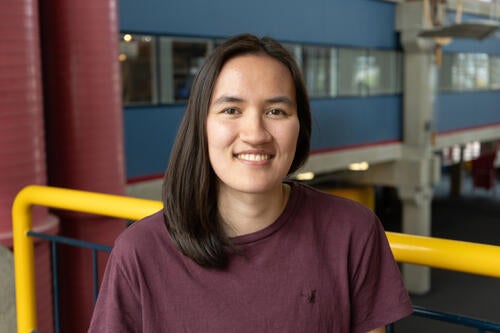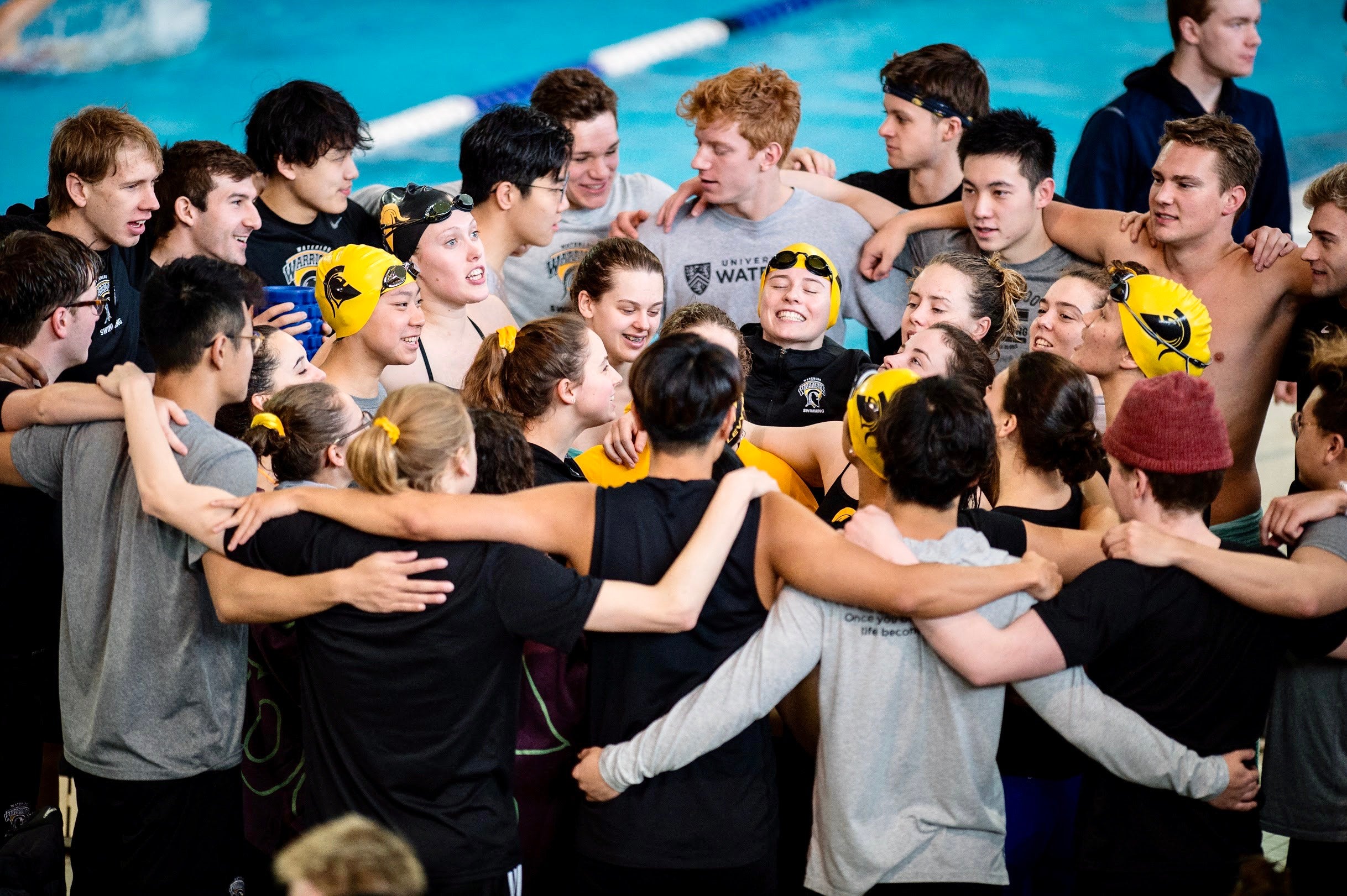
The final lap
Faculty of Mathematics graduate on overcoming adversity in the classroom and the pool

Faculty of Mathematics graduate on overcoming adversity in the classroom and the pool
By Melodie Roschman Faculty of MathematicsLaura Bumbulis always assumed she would go to the University of Waterloo. Her parents, two of her uncles and her older brother are all Waterloo alumni – a Waterloo family.
Beyond family tradition, she had been drawn to Waterloo because of the co-op program. She liked the idea of getting to try a few different fields before committing to a career.
She did three co-op terms – once as a math tutor and twice at a health tech start-up – before she found the co-op that changed everything: working at the Ontario Institute for Cancer Research.

Laura Bumbulis (BMath Combinatorics and Optimization/Statistics '23) is one of this year's exceptional graduates from the Faculty of Mathematics
Her work there helped Bumbulis finally decide on a career in biostatistics and won her the award for the 2021 Co-op Student of the Year for the Faculty of Mathematics.
Beyond the classroom
Alongside her academic career, Bumbulis was a competitive swimmer. She had been swimming competitively since she was eight, and by high school, she was swimming up to four hours a day, six days a week.
“I enjoyed it a lot growing up,” she says. “But I got a bit burned out during high school.
Because she swam so often, she didn’t have time to pursue other interests. The time commitment swimming required taught her self-motivation and time management – useful skills for any career – but it also focused on individual achievement, which left her feeling isolated.
Still, she says, she knew she wanted to at least try to keep swimming in university. She reached out to the Waterloo swim coach and had a spot on the varsity swim team waiting for her when she arrived. Though her introductory courses posed challenges and at times made for a difficult first term, the varsity swim team ended up being a homecoming.

Bumbulis (far right, in yellow swim cap) celebrates with teammates
“I found my motivation again,” she says. “I was introduced to a new group of people who were interested in the same things as me outside of swimming, and who were focused on school in a way that my teammates hadn’t always been before. There were people that I looked up to a lot, and it was motivating to train with them and compete with them.”
The pandemic interruption
Her time at Waterloo has had some disappointments as well. When the pandemic began, swimming practices stopped for months. It was the first time since Bumbulis was twelve that she spent more than two weeks outside of a pool, and her performance suffered.
When she was able to return to swimming in Fall 2020, the joy was once again gone. This time, she decided to listen to her gut. She finished that swim season, then left the team – though she stayed involved by volunteering as an assistant coach. With the extra time, she could pursue other interests: reading, cooking, spending time with family – and investing in her future career.
This summer, Bumbulis will be working as a research associate with Dr. Richard Cook, who will supervise her as she pursues a master’s in statistics at Waterloo starting this fall. Though she will no doubt face further twists and turns, she is optimistic.
She has learned, she says, not to “get caught up too much in the competitive atmosphere that can sometimes pervade university life. Really, the most important thing is learning.”

Read more
Introducing the 2023 Global Futures: Innovation Update

Read more
An ethical approach to technological change is growing in Waterloo’s innovation ecosystem

Read more
Talking about complex societal issues requires trusted experts to combat disinformation
The University of Waterloo acknowledges that much of our work takes place on the traditional territory of the Neutral, Anishinaabeg, and Haudenosaunee peoples. Our main campus is situated on the Haldimand Tract, the land granted to the Six Nations that includes six miles on each side of the Grand River. Our active work toward reconciliation takes place across our campuses through research, learning, teaching, and community building, and is co-ordinated within the Office of Indigenous Relations.